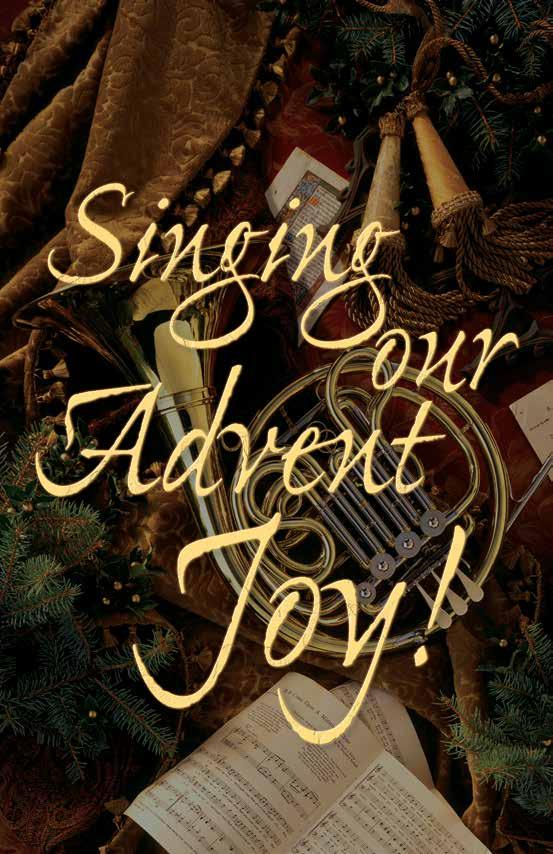
1 minute read
Singing our Advent Joy! The Advent Devotional from Austin Seminary, 2020
If you have to choose between reading this or listening to the hymn, it’s a no-brainer. Google “Come Thou Long Expected Jesus” and pick a version, preferably one with French horns. I recommend listening to it every day this week. We need the deeply calming yet strongly stirring promise held in this beautiful music.
Advertisement
You are reading this after the election; I write it twenty days before. I don’t know whether violence will come; the images of citizens carrying assault rifles scare me. Today I read that one in six Americans with jobs before the pandemic do not have jobs now. Walking my dog through the neighborhood, I imagine the families in every sixth house wondering what will become of them. My friend in Oregon tells me he uses one kind of mask to get from home to car because the air is toxic from the fires and another kind once he gets in the grocery store because of the COVID-19 threat. We don’t know whether it is safe for our family to gather for Christmas with my 84-year-old mother. But how can we leave her alone?
We long for what seem like such simple things—safety, work, air, health, connection, home. It was the same when Charles Wesley wrote this hymn. He wrote in a time of political polarization with threats of war. He wrote in a city with dire homelessness and extreme poverty among adults and especially orphaned children. He wrote knowing the simple longings of the human heart in the midst of the gritty public sin on display at every hand. He took the memory and promise of our Christian story and made it a claim and a plea: Come, thou long expected Jesus. Born to set us free from fear and release us from this awful sin. Come on, we beg you. We wait for you, the joy of our longing hearts.
Let our waiting be sweet. Let us wait knowing that our expectant hope is not in vain, that God is born in the midst of our grief, that we do indeed find rest in Jesus.
– Ms. Melissa Wiginton, Vice President for Education Beyond the Walls & and Research Professor in Methodist Studies


